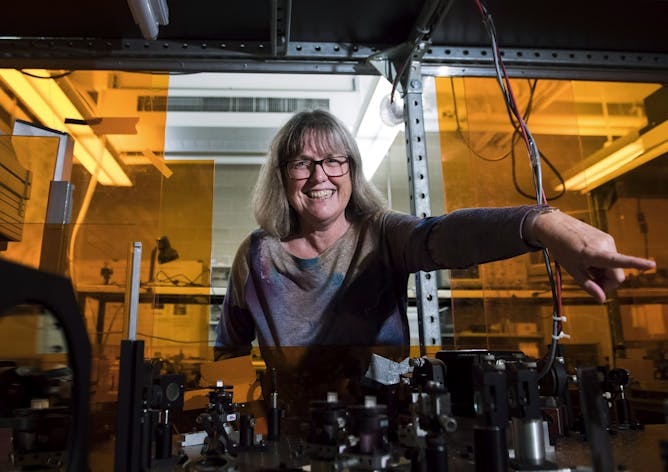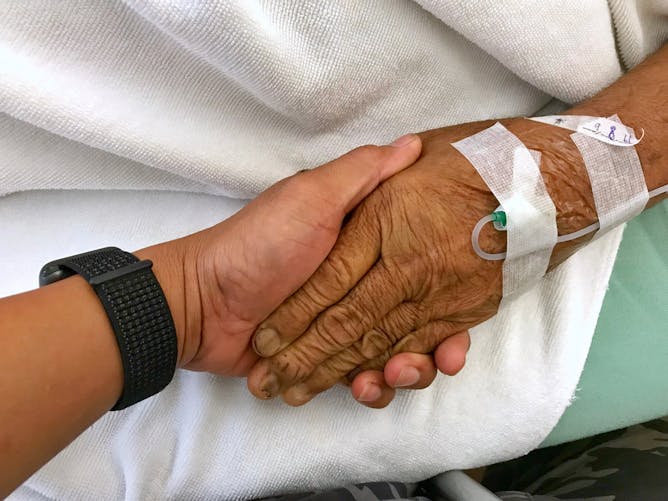|
The history books will now put Canadian Donna Strickland’s name alongside the great Marie Curie and Maria Goeppert-Mayer as the only women to win the Nobel Prize for physics. Today in The Conversation Canada, Todd Adams, a professor of physics at Florida State University, explains the science behind the University of Waterloo researcher's Nobel win.
Ashley Rubin of the University of Toronto, who studies prisons, writes about the wealth of research that shows prisons have serious psychological impact on not only the prisoners, but prison workers.
The city of Toronto’s controversial municipal election is less than a month away. Estair Van Wagner of York University and Alexandra Flynn of University of Toronto make the case that Ontario Premier Doug Ford’s law to cut the size of Toronto city council has more serious implications than most people realize.
Artificial Intelligence is becoming an increasingly important part of our everyday lives. But Melissa Avdeeff of the University of Victoria asks: can AI actually create creative and emotionally engaging music?
And finally… patients often complain about the bedside manners of their doctors. Hartley Jafine of McMaster University writes about a unique program he’s involved with that uses theatre courses to better train health-care professionals.
Regards,
|

The 2018 Nobel Prize for physics recognized discoveries that can make more powerful lasers.
Todd Adams, Florida State University
The Nobel Prize for physics was awarded to three scientists for the inventions of optical tweezers – in which two laser beams can hold a tiny object – and a method for creating powerful lasers.
|

Even the most humanely designed prisons have negative effects on the people living and working inside.
(Shutterstock)
Ashley Rubin, University of Toronto
A wealth of research suggests prisons have serious detrimental effects on prisoners and prison workers.
|

Ontario Premier Doug Ford returns to the provincial legislature during a midnight session to debate the bill that cut the size of Toronto city council from 47 representatives to 25 in September 2018.
THE CANADIAN PRESS/Chris Young
Estair Van Wagner, York University, Canada; Alexandra Flynn, University of Toronto
City council is a level of government deserving of recognition and autonomy. That's why Toronto must continue to fight Ontario's attempt to exert its will over the city.
|

A promotional photo for the release of Skygge’s first album ‘Hello World.’
Jean Francois Robert
Melissa Avdeeff, University of Victoria
AI and human musical collaborations have been around since the 60s, but for the first time, we are hearing AI "pop" music: can AI actually create creative and emotionally engaging music?
|

Training in improvisational theatre enables health professionals to learn deeper empathy, as well as mental agility and other clinical skills.
(Shutterstock)
Hartley Jafine, McMaster University
Health professionals need a dose of drama in their training to build clinical and interpersonal skills.
|
Arts
|
-
Martin Hall, York St John University
What is it about Westerns that tempts so many musicians into ten-gallon hats?
|
|
Culture + Society
|
-
Jonathan Entin, Case Western Reserve University
Before she became a Supreme Court justice, Ruth Bader Ginsburg’s work as an attorney in the 1970s fundamentally changed the court’s approach to women's rights and how we think about women – and men.
|
|
Environment + Energy
|
-
Anja Scheffers, Southern Cross University
A combination of tectonic plates, geography and poor infrastructure make Indonesia vulnerable to deadly tsunamis.
|
|